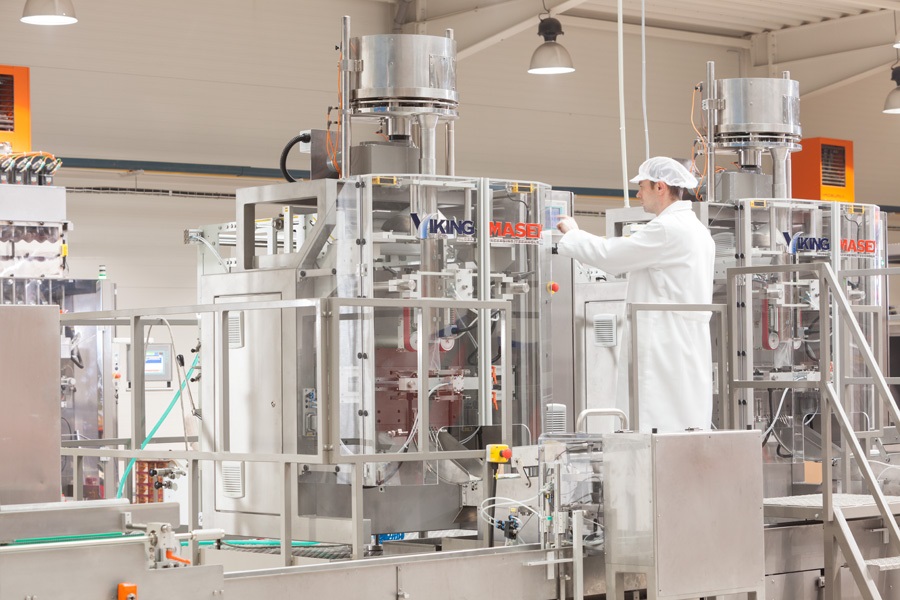Automated filling machines have become indispensable technology across various industries, transforming the way products are dispensed into containers. These versatile machines utilize advanced mechanisms such as pumps, valves, sensors, and software to automatically and precisely fill containers with liquids, pastes, powders, and more. In this article, we’ll delve into the world of auto filling machines, exploring their significance, types, benefits, and diverse applications across industries.
The Significance of Auto Filling Machines
Efficiency, Accuracy, and Speed: Auto filling machines epitomize efficiency by automating the filling process. They eliminate the time-consuming and error-prone nature of manual filling, allowing thousands of containers to be filled consistently and precisely in a fraction of the time it would take human workers.
Versatility: These machines cater to a wide range of products and container types, from bottles and cans to tubes and drums. Their adaptability makes them invaluable in industries where diverse packaging requirements exist.
Types of Auto Filling Machines
Volumetric Filling Machines: These machines meticulously measure each container’s volume before filling, ensuring the highest level of filling accuracy. They employ piston pumps or rotary vane pumps to draw the product from a tank and dispense a preset amount into each container. Ideal for industries requiring precise fill volumes like food, pharmaceuticals, chemicals, and cosmetics.
Gravimetric or Weight Filling Machines: These machines fill containers to the exact target weight of the product, using load cells to continuously monitor weight during filling. They automatically adjust fill speed and cut-off points to achieve specified package weights.
Piston Fillers: Piston fillers employ reciprocating piston pumps to consistently fill containers to the same level, making them suitable for various products.
Overflow Fillers: These fillers intentionally fill containers above the desired volume, relying on excess product to spill over, ensuring consistent fill levels.
Multi-Head Filling Machines: Designed for high-speed production, multi-head filling machines can fill numerous containers simultaneously through a bank of filling nozzles, making them ideal for industries with high output demands.
Benefits of Auto Filling Machines
Spill Prevention and Waste Reduction: Auto filling machines eliminate spills and waste associated with manual filling, resulting in higher product yields.
Consistency in Fill Volumes: These machines provide extreme consistency in fill volumes, ensuring customers receive the correct quantity of product every time.
Increased Throughput: Efficient operation enables higher throughputs, allowing companies to meet growing production demands.
Seamless Packaging Integration: When integrated with conveyors, labelers, and cappers, auto filling machines create a seamless packaging operation.
Quality Control: Their precision and repeatability reduce the risk of over or under-filled containers slipping through quality control.
Applications Across Industries
Industries utilizing auto filling machines span a wide spectrum, including
Food and Beverage: Used for filling liquids such as milk, juices, soda, and yogurt, as well as condiments, sauces, dressings, and jams.
Pharmaceuticals: Essential for producing vaccines and injectable drugs, ensuring precise volumes and sterile filling conditions.
Cosmetics: Utilized to fill products like shampoo, hand soap, perfumes, and lotions while maintaining strict quality and safety standards.
Chemicals: Filling motor oil, window cleaner, and other chemical products with accuracy and efficiency.
Automotive: Filling automotive fluids and lubricants with precision.
Consumer Packaged Goods: Used for a wide range of products, including household cleaning products, toiletries, and more.
Selecting the Right Auto Filling Machine
When choosing an auto filling machine, consider factors such as:
Fill Speed: The required production rate.
Changeover Time: The ease and speed of transitioning between different container types and sizes.
Filling Accuracy: The level of precision required for your products.
Viscosity Range: Whether the machine can handle products with varying viscosities.
Food Safety Compliance: Compliance with food safety regulations if relevant to your industry.
Quality Monitoring: Capability for quality monitoring and data collection.
Certifications: Any specific certifications needed for your products or industry.
Leading manufacturers offer custom-engineered systems tailored to exact applications and container types, ensuring optimal production efficiency and product consistency.
In conclusion, auto filling machines have revolutionized various industries by providing unmatched efficiency, precision, and versatility in the container filling process. Whether filling bottles with beverages or drums with chemicals, these machines have become indispensable tools for meeting production demands while maintaining high-quality standards. Understanding the diverse types and benefits of auto filling machines allows industries to optimize their production processes and cater to the evolving needs of consumers.

